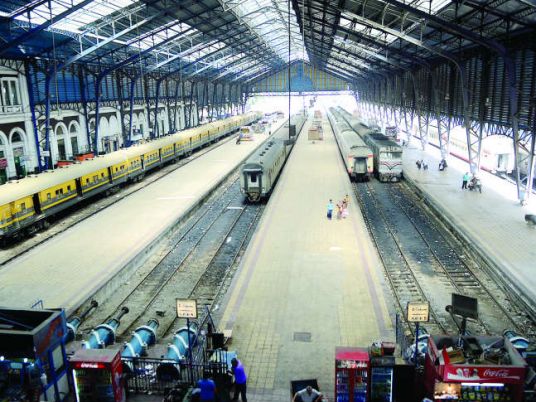
To crack down on thieves, beggars, fare-dodgers and general harassment at Cairo's main train station, the Egyptian authorities have decided to open a law court in the midst of the chaotic terminus to dispense quick justice.
Ramses station, a vast pharaonic-style edifice built in 1892, handles more than 1.5 million passengers a day, making it one of the busiest railway stations in the world.
With the heaving numbers come a host of problems, including pickpockets, baggage touts and commuters who don't pay for their tickets, which the railway authority says leads to hundreds of millions of dollars of lost income every year.
As a result, the ministry of justice and the ministry of transport have given the go-ahead for a court to be set up inside the station, part of a wider crackdown on law and order under President Abdel Fattah al-Sisi.
"The decision has been taken and it's going to happen in the coming months," Nagwa Albert Habib, the director of presidency affairs at the Egyptian National Railways, told Reuters.
"For fare-evaders and anyone else who violates any rule inside the station, they will be judged right away."
Currently, it's up to the railway police to nab any wrongdoers. But Habib said the legal procedures were drawn out and people were too often let go. It is also not uncommon for people to bribe their way out of trouble in Egypt.
"Once we have our own judge, they will be able to issue fines to people right away and there will be quick justice. There will be many fewer problems," she said.
The station, which recently underwent extensive renovation, is a riot of humanity, the main concourse teeming with people dashing to catch local commuter trains or longer services to Alexandria, Luxor and Aswan.
Lots of police were hanging around the station on Wednesday, all of them carrying official looking ticket books, but passengers still sauntered across the railway tracks and beggars and baggage touts were busily plying their trade.
Habib said she was sure that once a judge was appointed and the court was up and running, both passengers and the railway authority would benefit.
"When the people know that there is a judge and fines can be issued immediately, they will not fight over a seat or fight with the conductor," she said. "And with fare-evaders, we will stop losing a big amount of money."
